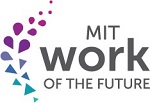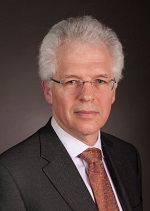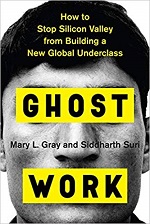 |
|
2020 Industry Studies Association (ISA)
Annual Conference
June 3-5, 2020 in Boston, MA, USA
Theme: "Work of the Future"
Come to MIT Sloan School's Samberg Center for the 2020 ISA conference, which will include two days of paper sessions, two plenaries, and a pre-conference Professional Development Workshop for early career scholars.
New this year: two "meet the author" sessions, guest speakers on ISA's history and future, and chances to learn about local industries. Plus many opportunities to network and enjoy all the great conversations that happen when industry studies scholars get together. Join us!!
|
Conference Highlights Day 1 | June 4, 2020
|
 |
The Work of the Future: A Plenary
Advances in artificial intelligence, robotics, and other related technologies are creating new technological capabilities that can both replace and enhance human physical and increasingly, cognitive activities. This creates significant possibilities for reimagining and redesigning work, enhancing the human-technology interface, increasing the connectivity within supply chains, and many other positive implications for workers, firms and society at large. But it also generates uncertainty and anxiety about the future of work, and whether technological change can be harnessed to benefit everyone. David Mindell, co-chair of MIT’s Work of the Future Initiative, and Tom Kochan, from MIT Sloan’s Institute of Work and Employment Studies, will lead a multidisciplinary panel in addressing these issues.
|
Moderators:
David Mindell

Tom Kochan

|
 |
Globalization, Norms, and Integrity: The Case of Pharmaceuticals
A Session with Katherine Eban, Author
Does there exist a "Future of Work" in which a global set of norms exist, and are consistently adopted? Katherine Eban will discuss her 2019 New York Times Best Seller, Bottle of Lies, in which she uncovers the fraudulent activities of many manufactures of generic medicines. Eban and discussants will consider to what extent fraudulent work practices and threats to integrity-based norms are unique to the pharmaceutical industry; and/or simply another manifestation of differing norms around the globe.
They will then debate the path to consistent adoption of global norms, and the extent to which it will be driven by governments, non-governmental organizations, and/or industry.
Facilitated by John Gray, Ohio State
|
 |
 |
Reflecting on Industry Studies: Thirty years of MIT Industrial Performance Center and the ISA
Richard Lester is the Japan Steel Industry Professor and Associate Provost at MIT, where he oversees the international engagements of the Institute. He is also the founder and faculty director of the Industrial Performance Center (IPC) as well as founding member of the Industry Studies Association. During lunchtime remarks, Professor Lester will describe the evolution of the IPC, its linkage to ISA, what has been learned from the evolution of both organizations, and what we hope the next 30 years will bring for them as well as all of us who engage in industry studies.
|
 |
Conference Highlights Day 2 | June 5, 2020
|
 |
Ghost Work: How to Stop Silicon Valley from Building a New Global Underclass
A Session with Mary L. Gray, Author
In the age of the gig economy and fissured work, the emergence of new artificial intelligence (AI) technologies have created “ghost work.” Authors Mary L. Gray and Siddharth Suri of Microsoft Research coin the term to describe the invisible labor that supports technology platforms reliant on AI. From labeling images to classification tasks to cleaning up databases, contract workers at all skill levels are engaging in project-based, task-driven work to make unstructured data structured. Gray, an anthropologist by training, as well as several discussants, will discuss the likely trajectory for this type of work given the increasing use of AI, the implications for workers and their work conditions, and potential policy responses that could “stop making our lives wrap around work, and start making work serve our lives.”
Facilitated by Jerry Jacobs, U. Pennsylvania
|
 |
 |
Pricing and Innovating: A Plenary on a Crossroad for the Biotechnology Industry
The innovation process is becoming more complex. Innovation emerges at the interstices of multiple disciplines and draws on disparate resources and data, involving multiple stakeholders who are often distributed globally. Few industries exhibit this complexity better than the biotechnology industry. In biotechnology, manufacturers, regulators, payers, providers, researchers and patients all navigate a dynamic social, political and economic environment in order to develop and make available new, more efficacious drugs for patients. For these stakeholders to work together is one challenge. Pricing the drugs which are critical to them all is – for various reasons – another challenge. This plenary will address these challenges, and how the biotechnology industry strives to create effective innovation ecosystems that serve the needs of its multiple stakeholders.
|
Panelists to be announced |
|